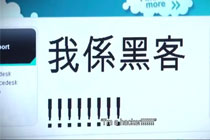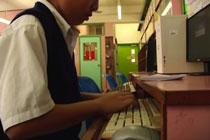
Bad Luck on the Internet
Sally likes to shop online and surf around but she seems to be having bad luck. She bought counterfeit product and was cheated by a fake online bidding post. Even making comments on other posts seems to get her into trouble. Is Sally a victim of various crimes?

The Invisible Thief
Andy is a Computer Science student who likes to study hacking and computer security. One day, he hacked into a company’s computer system, deleted some contents from the company’s website, and copied some clients’ information. What will he do with those clients’ information?

My Wayward Girlfriend’s Punishment
Yee, an unruly girlfriend, is used to scolding her boyfriend whenever she likes. But she did not expect her practice to become an Internet sensation, and did not expect the fierce criticism and teasing that she received. Yee was deeply upset by the incident and set up a group on a social network, asking others to join her to commit suicide…

The Teacher’s Password
Chi Ming, a Form 3 student, has got hold of his teacher’s (Mr. Leung) intranet password by accident. What will Chi Ming do with the password?

Illegal e-Life
Him works in a hospital and has a boring life. He likes to download and upload pop music, movies and TV programmes to share with others on the Internet. Him never intended to share the hospital patient’s information with others, but he did it by accident.